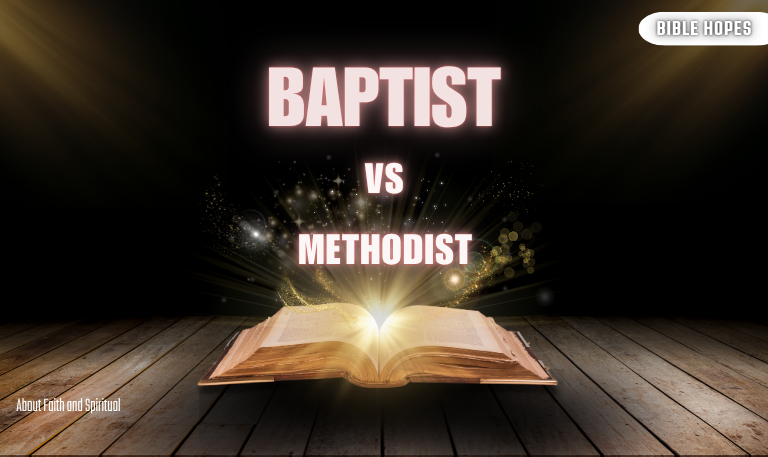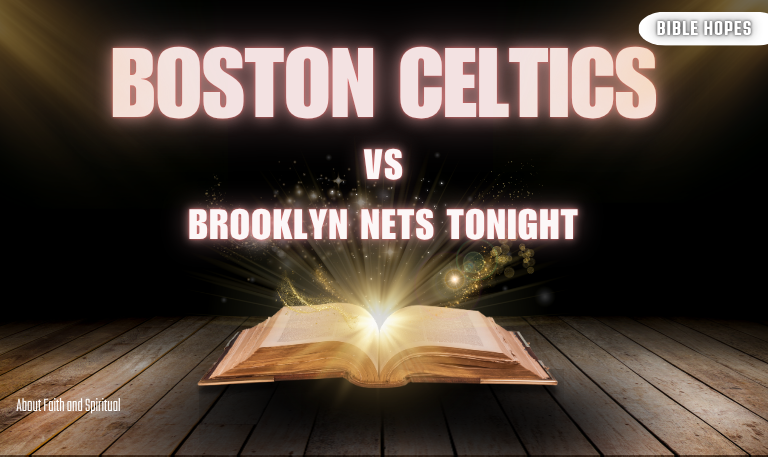When it comes to Christianity, there are numerous denominations, each with its own unique beliefs, traditions, and practices. Among the most prominent of these are the Baptist and Methodist churches. Both are large Protestant denominations with deep historical roots and significant global followings. However, despite sharing many foundational Christian beliefs, the two traditions differ in several key areas, including their understanding of baptism, church governance, and theological perspectives.
In this comprehensive guide, we will explore the essential differences and similarities between the Baptist vs Methodist churches. Whether you are exploring these faiths for personal knowledge, religious study, or are simply curious about the distinctions, this article will provide a thorough analysis of their origins, beliefs, practices, and more.
I. What Are Baptist and Methodist Churches?
Baptist Church Overview
The Baptist Church traces its origins to the early 17th century and is part of the broader Protestant tradition. Known for its emphasis on baptism by immersion and the autonomy of local congregations, the Baptist faith is characterized by a strong commitment to the authority of the Bible.
Methodist Church Overview
The Methodist Church, on the other hand, originated in the 18th century through the efforts of John Wesley and his followers. While it shares many core Christian beliefs with the Baptists, it is distinguished by its emphasis on social justice, the means of grace, and its hierarchical form of church governance.
Why the Comparison?
Both denominations have millions of adherents worldwide and have played pivotal roles in shaping the Protestant landscape. While their teachings overlap in many ways, their theological stances, practices, and governance models differ significantly.
Read Also: Catholic vs Baptist
II. Historical Origins and Development
Baptist Church History
The Baptist movement emerged in the early 1600s in England, particularly in the context of the Separatist movement, which sought to break away from the Church of England. John Smyth is often credited with founding the first Baptist congregation in 1609. The Baptist distinctive—full immersion baptism—became a hallmark of their faith.
Methodist Church History
The Methodist movement was founded by John Wesley and his brother Charles Wesley in the early 1700s. Initially part of the Church of England, the Methodists were characterized by their rigorous approach to personal holiness and disciplined, methodical living—hence the name “Methodist.”
John Wesley’s Influence: John Wesley’s evangelical mission focused on personal holiness, a strong commitment to social justice, and a desire to spread the gospel to the underserved.
III. Core Beliefs and Doctrines
1. Core Beliefs of the Baptist Church
Authority of Scripture: Baptists hold the Bible as the sole rule for faith and practice, emphasizing a literal and personal interpretation of Scripture.
Salvation by Faith: Baptists believe in salvation through faith alone (sola fide). This means that salvation is a personal choice and a gift from God, received by faith.
Baptism by Immersion: Baptism is a crucial sacrament for Baptists and is practiced by full immersion as an outward sign of the believer’s faith in Christ.
2. Core Beliefs of the Methodist Church
Grace and Free Will: Methodists believe in the concept of prevenient grace—the grace of God that goes before, making it possible for individuals to choose salvation. They also emphasize free will in the decision to accept God’s grace.
Sacraments: Like the Baptists, Methodists recognize baptism and Holy Communion as sacraments. However, while Baptists practice baptism by immersion, Methodists allow both immersion and sprinkling.
Sanctification: Methodists place a significant focus on sanctification, or the process of becoming more like Christ throughout one’s life.
IV. Baptism Practices: Immersion vs. Sprinkling
Baptist Baptism
Baptists hold that baptism should be performed only by full immersion, symbolizing the believer’s identification with the death, burial, and resurrection of Christ. This immersion represents an outward sign of an inward faith, demonstrating a conscious, personal decision to follow Christ.
Methodist Baptism
The Methodist Church, while also recognizing baptism as an important sacrament, permits both immersion and sprinkling. Methodists believe baptism symbolizes the covenant between God and the individual, regardless of the method used.
Read Also: Baptist vs Presbyterian
V. Church Governance: Congregational vs. Episcopal Polity
Baptist Church Governance
The Baptist Church operates under a congregational polity, meaning that individual churches have complete autonomy and make decisions through a congregational vote. This system emphasizes local church authority and the role of the congregation in decision-making.
Methodist Church Governance
The Methodist Church, in contrast, adheres to episcopal polity, where governance is hierarchical, and bishops oversee multiple congregations. The connectional system, which links local congregations with regional and national bodies, is a distinctive feature of the Methodist church structure.
VI. Worship Practices: Baptist vs Methodist Styles
Baptist Worship
Baptist worship is generally characterized by:
Scripture-based preaching: A strong emphasis on Bible-centered preaching and teaching.
Contemporary and Traditional Music: Baptist churches may feature either traditional hymns or contemporary Christian music, depending on the congregation.
Methodist Worship
Methodist worship tends to be more structured, with:
Liturgical Elements: Many Methodist services include liturgy, such as creeds, prayers, and responses.
Sacramental Worship: Methodists place strong emphasis on the sacraments, especially the Eucharist (Holy Communion).
VII. Theological Differences: Free Will vs Predestination
Baptist View on Free Will
Baptists believe in free will and emphasize personal responsibility in accepting or rejecting God’s gift of salvation.
Methodist View on Predestination
Methodists adhere to the Arminian view, which emphasizes free will while also acknowledging God’s prevenient grace—the grace that enables humans to choose salvation.
VIII. Key Similarities Between Baptists and Methodists
Belief in the Trinity: Both denominations share a belief in God as Father, Son, and Holy Spirit.
Salvation by Grace: While their views on grace differ, both hold to salvation as a gift from God.
Evangelistic Mission: Both the Baptist and Methodist churches emphasize spreading the Christian gospel worldwide.
Read Also: Methodist and Presbyterian Church
IX. Social and Political Views: A Comparative Analysis
Baptist Views on Social Issues
Many Baptist churches are conservative when it comes to social issues, including marriage, abortion, and other ethical concerns.
Methodist Views on Social Justice
Methodists, particularly the United Methodist Church, emphasize social justice, advocating for the poor, marginalized, and oppressed, and often take a more progressive stance on social issues.
X. Key Figures in Baptist and Methodist History
Famous Baptists
Charles Spurgeon: A prominent 19th-century preacher known for his powerful oratory and commitment to spreading the gospel.
Roger Williams: A founder of Rhode Island and a significant figure in the development of religious freedom in America.
Famous Methodists
John Wesley: The founder of Methodism, whose theological contributions and missionary efforts shaped the Methodist movement.
Charles Wesley: The brother of John Wesley, known for composing hundreds of hymns that are still sung in Methodist services today.
XI. Common Misunderstandings: Baptist vs Methodist
Misconception 1: Methodists Are Just ‘Liberal Baptists’
While both share certain theological beliefs, Methodism has a distinct governance structure and emphasis on social justice that sets it apart from Baptist traditions.
Read Also: Warfare Prayer Points
Misconception 2: Baptists Reject All Sacraments
Baptists do recognize two key ordinances: baptism and the Lord’s Supper (communion). These are viewed as symbolic and memorial.
Baptist vs Methodist FAQs
Q: What is the difference between Baptist and Methodist baptism?
A: Baptists practice full immersion baptism, while Methodists practice both immersion and sprinkling.
Q: Can a Baptist attend a Methodist church service?
A: Yes, Baptists and Methodists share many common beliefs and can attend each other’s services, though there may be differences in worship style and church practices.
Q: Do Baptists and Methodists believe in the same God?
A: Yes, both denominations believe in the Trinity: God the Father, God the Son, and God the Holy Spirit.
Q: What do Baptists believe about salvation?
A: Baptists believe in salvation by faith alone and that it is a personal decision made by the individual to accept Christ.
Q: Do Methodists believe in predestination?
A: No, Methodists emphasize free will and believe that God’s grace makes salvation possible for everyone who chooses it.
Conclusion
While Baptists and Methodists share common ground in many areas, such as belief in the Trinity, their differences in baptism, church governance, and theological views make each unique. Ultimately, the choice between the two depends on individual preferences regarding worship style, church governance, and theological outlook. Understanding these differences allows you to make an informed decision about which church best aligns with your beliefs and practices.



![15 Pink Bible Verses | Discover Meaning, Love [2025 Guide] 5 15-Pink-Bible-Verses-Discover-Meaning,-Love-[2025-Guide]](https://biblehopes.com/wp-content/uploads/2025/05/15-Pink-Bible-Verses-Discover-Meaning-Love-2025-Guide.png)